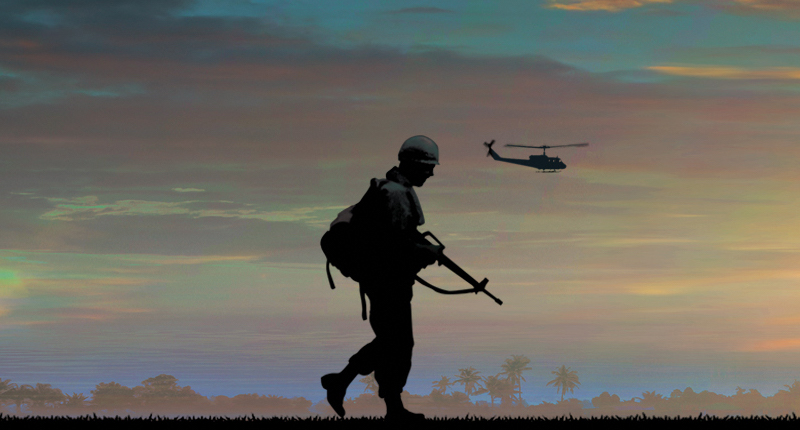
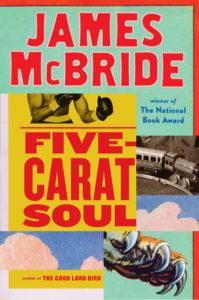
1. Five-Carat Soul by James McBride
(8 Rave, 1 Positive, 1 Mixed)
“The writer and musician James McBride proves once again that he is a master conjurer of African Americana with his new book of charmed, imaginative short stories, Five-Carat Soul … Full of humor, down-home vernacular and slightly twisted nostalgia, McBride’s coming-of-age stories about this crew’s adventures go down like warm milk sneakily spiked with a shot of whiskey.”
–Tyrone Beason (The Seattle Times)
*

2. Solar Bones by Mike McCormack
(7 Rave, 1 Positive)
“Mike McCormack’s Solar Bones is exceptional indeed: an extraordinary novel by a writer not yet famous but surely destined to be acclaimed by anyone who believes that the novel is not dead and that novelists are not merely lit-fest fodder for the metropolitan middle classes … The magnificent song that is Solar Bones possesses such peculiar depth, such consonances and dissonances that it is a reminder that a writer of talent can seemingly take any place, any set of characters, any situation and create from them a total vision of the reality. This is a book about Mayo, Ireland, Europe, the world, the solar system, the universe.”
–Ian Sansom (The Guardian)
*

3. Go, Went, Gone by Jenny Erpenbeck, Trans. by Susan Bernofsky
(5 Rave, 2 Positive)
“Jenny Erpenbeck’s magnificent novel Go, Went, Gone is about ‘the central moral question of our time,’ and among its many virtues is that it is not only alive to the suffering of people who are very different from us but alive to the false consolations of telling ‘moving’ stories about people who are very different from us … Her task is comprehension rather than replication, and she uses a measured, lyrically austere prose, whose even tread barely betrays the considerable passion that drives it onward.”
–James Wood (The New Yorker)
*
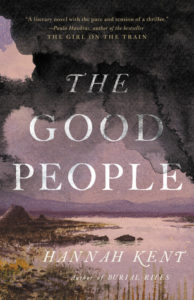
4. The Good People by Hannah Kent
(3 Rave, 4 Positive)
“Kent’s suspenseful storytelling plunges readers into early 19th-century Ireland. She brings vivid life to the hardscrabble scenes: dingy cabins and backbreaking work and the grim hiring fairs where poor children sell their labor to less poor people such as Nóra. When Nóra and Nance head off to confront the fairies, you can feel the mud sliding beneath their bare feet. Although The Good People is fiction, it faithfully represents the hold of ancient Celtic myths on generations of Irish. It also lays bare some hard truths about human nature and leaves you thinking about belief, suspicion and what happens to a community when fear takes hold.”
–Maureen McCarthy (The Minneapolis Star Tribune)
Read an essay by Hannah Kent here
*
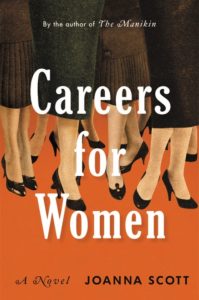
5. Careers for Women by Joanna Scott
(3 Rave, 2 Positive, 1 Mixed)
“..a serpentine, craftily arranged novel that spans decades and county lines, with underplayed walk-on roles by the urban activist Jane Jacobs; John Lindsay, a former mayor of New York; and the French high-wire artist Philippe Petit, who famously walked between the Twin Towers in the 1970s … Scott serves up the vice-ridden narrative with white-glove service. For a book so full of corruption, Careers for Women never reads like hackneyed crime fiction. She borrows the genre’s best aspects (pacing, stakes, excitement) and eschews its worst (gore, stilted dialogue, clumsy foreshadowing).”
–Alice Gregory (The New York Times Book Review)
Read an essay by Joanna Scott here
**
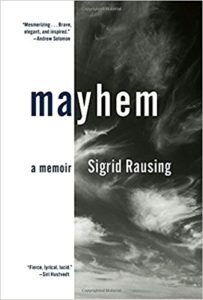
1. Mayhem by Sigrid Rausing
(3 Rave, 3 Positive, 1 Mixed)
“In seeking an alternative to the headlines, Rausing offers thoughtfulness and introspection. She also provides a lot of self-flagellation … But what gives this book its astonishing power is not the guilt, but the intelligence and literary skill. As a narrative, it’s beautifully structured, weaving its way from the family’s childhood holidays in rural Sweden to their lives in London, returning always to the hideous image of Hans and Eva’s bedroom as the dark centre of the story.”
–Lara Feigel (The Guardian)
*
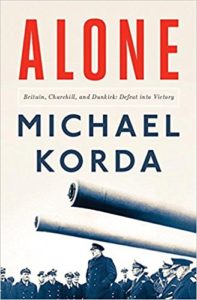
2. Alone by Michael Korda
(4 Rave, 1 Positive)
“In a way, Alone comes to readers as a kind of Oscar project in its own right. It’s blurbed by Larry McMurtry, David McCullough, and Henry Kissinger; it’s lavishly illustrated; and Korda grounds its familiar story with his childhood memories of wartime tensions and radio broadcasts. This memoir framing-device gives Korda a measure of dramatic license, and he uses it to good effect. Alone is relentlessly involving reading, full of masterfully-drawn set pieces … It’s a neatly-trimmed story, a proud island holding on against a rising tide of darkness, fighting alone until either defeat or longed-for help arrives”
-Steve Donoghue (The Christian Science Monitor)
*
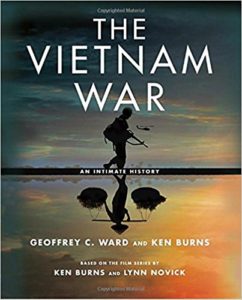
3. The Vietnam War by Geoffrey C. Ward and Ken Burns
(2 Rave, 1 Positive, 2 Mixed)
“With the combined impact of robustly detailed writing and more than 500 staggering photographs, Ward and Burns thoroughly chronicle horrific combat and relentless bombing missions, the mass deployment of napalm and Agent Orange, the suffering and death of civilians, the resiliency of North Vietnamese forces, and the powerful antiwar movement … With reflections by prominent journalists and writers, including Philip Caputo and Viet Thanh Nguyen, this is a vivid, affecting, definitive, and essential illustrated history.”
–Donna Seaman (Booklist)
*
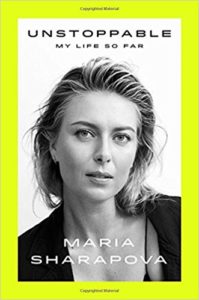
4. Unstoppable by Maria Sharapova
(1 Rave, 5 Positive, 1 Mixed, 1 Pan)
“The book may not make her more likeable—why, again, do we need her to be?—but it does make her a hell of a lot more knowable. Sharapova’s a careful observer, and Unstoppable is full of astute psychological insights … Even when she writes about life off the court, every revelation feels calculated. There’s a matter-of-factness to her tone; this is less catharsis than analysis of the very clever ways that the author has turned her deficits into her advantages.”
–Julia Felsenthal (Vogue)
*
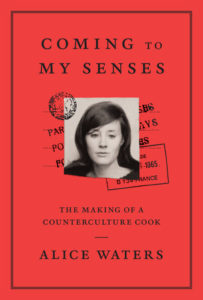
5. Coming to My Senses by Alice Waters
(2 Rave, 2 Positive, 1 Mixed, 1 Pan)
“Coming to My Senses is extremely easy to digest, even for non-foodies, largely because Waters views her eventful life with a touch of wonderment that is at once wide-eyed and slyly observant. This book is nicely peppered with telling details, wry and often self-deprecating quips, perceptive character sketches of family, friends, mentors, and even an occasional recipe … Waters comes across as intelligent, creative, intuitive, exacting, brave and, always, learning.”
–Bill Daley (The Chicago Tribune)
***

